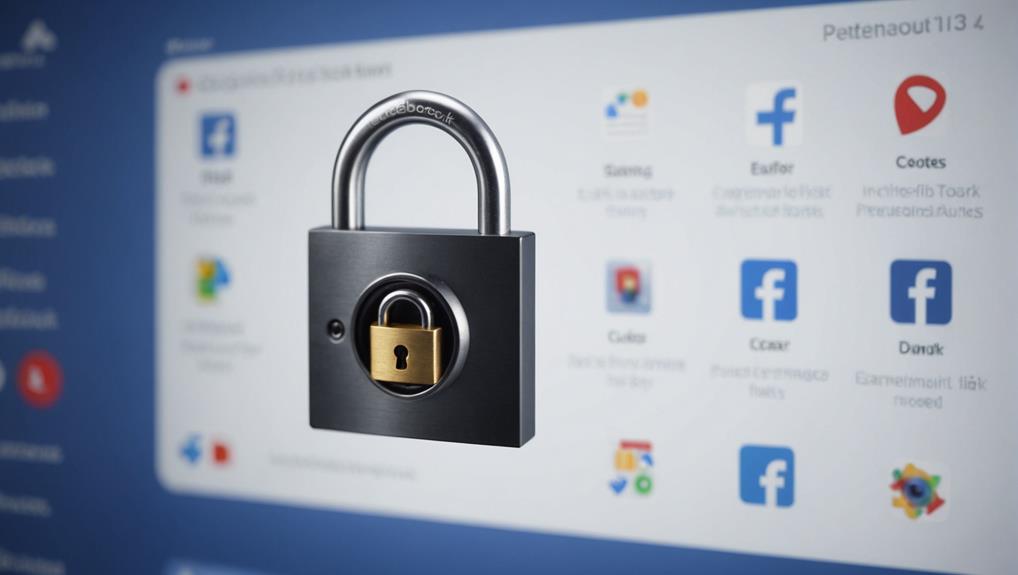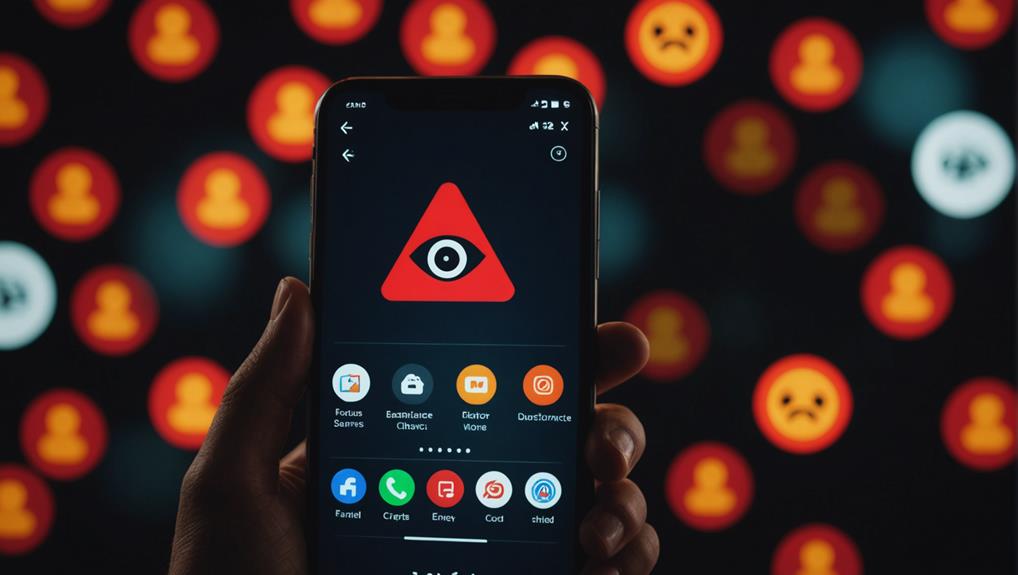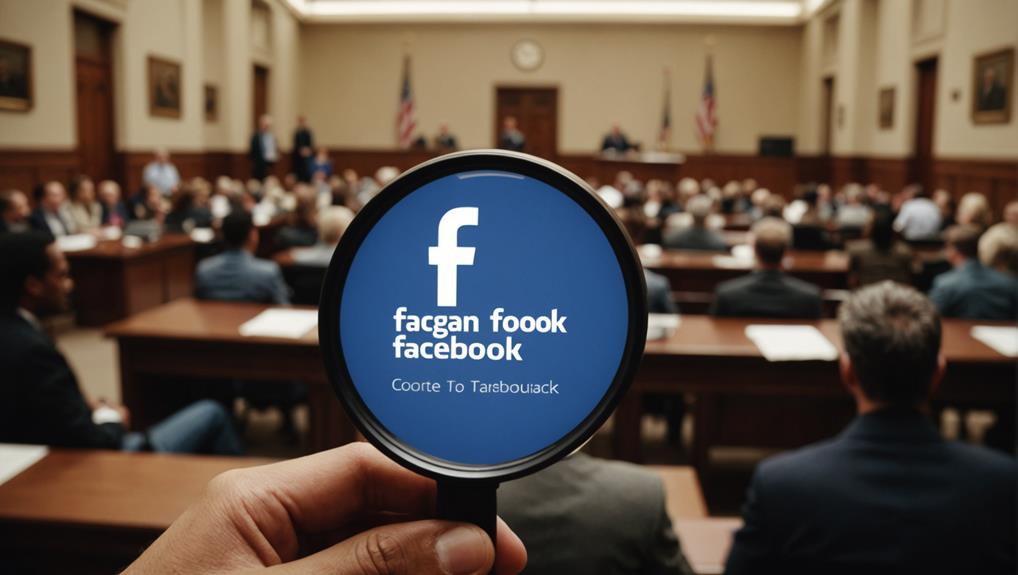Unfortunately, you can't see who has viewed your Facebook profile. Facebook doesn't provide any feature that shows who visits your profile, and third-party apps claiming to offer this ability are unreliable and potentially harmful. These apps can compromise your privacy and security by misleading you with false information. Instead of trying to find out who's been checking your profile, focus on adjusting your privacy settings to control who can see your posts and personal information. As you adjust these settings, you'll learn how much control you have over your Facebook privacy, which can give you greater peace of mind.
Understanding Facebook Privacy

Understanding Facebook's privacy settings is crucial to controlling who can see your information and activities. When you navigate through your settings, you'll find options that determine the visibility of your posts, friend list, and personal details. It's important to regularly review these settings, as Facebook often updates its policies and features.
To adjust who can see your posts, head over to the privacy shortcuts. Here, you can tweak the audience for your future posts—whether it's public, friends, or something more specific like close friends or custom lists. Don't forget to check past posts too; there's an option to limit old posts that might've been shared publicly or with a wider audience than you'd prefer now.
Your friend list can also be a privacy concern. You mightn't want everyone to see who you're connected with. In the privacy settings, look for the option to hide your friend list from everyone except you. This prevents others from snooping through your connections.
Lastly, be mindful about the personal information you share in your profile details. Limit the visibility of sensitive information such as your birthday, contact details, and address. Managing these settings helps protect your privacy and keeps you in control of your online presence.
The Myth of Profile Viewers
Many people believe they can see who's viewed their Facebook profile, but this is actually a myth. Despite various online claims and tools that suggest they can provide this information, Facebook itself has consistently confirmed that no one can access such data. It's tempting to think you can peek into who's checking you out, but the reality doesn't support these claims.
You might come across apps or websites claiming to reveal your profile lurkers. However, don't be fooled. These are often scams designed to capture your personal information or to trick you into downloading malware. Engaging with these services not only jeopardizes your privacy but can also pose a security risk to your device.
Instead of looking for ways to see who's viewed your profile, focus on managing your privacy settings effectively. This approach ensures you control who sees what you post and protects your information from prying eyes.
Common Misconceptions Explained

Several common misconceptions about Facebook persist, misleading users about what they can and can't do on the platform.
You might've heard rumors or seen apps and websites claiming they can show you who's viewed your Facebook profile. It's crucial to understand that Facebook officially doesn't allow anyone to see such information. Any service that claims it can provide this data is likely attempting to scam you or compromise your privacy.
You might also think that the people appearing in your Facebook chat sidebar or the nine friends on your profile page are those who stalk your profile the most. However, Facebook has stated that these lists are based on many factors, including who you interact with in messages and comments, as well as shared activity.
Another common myth is that you can see visitors to your profile through the Facebook source page by searching for 'list' in the code. This belief is merely a misunderstanding of how web technologies work. The numbers you find are various user IDs associated with Facebook, but they don't indicate who's visited your profile.
Always be wary of any non-official method that promises this capability – they're not just ineffective, they could be harmful.
Analyzing Friend List Behavior
Let's explore how your interactions influence the behavior of your Facebook friend list. The way you engage with friends—through likes, comments, and shared posts—can often lead to alterations in what you see on your news feed. As you interact more with certain friends, you'll notice their content appears more frequently. This isn't random; it's Facebook's algorithm at work, prioritizing interactions.
You might've noticed that when you friend someone new, their posts start popping up more often. That's because Facebook boosts visibility among new connections to help strengthen these relationships. Conversely, if you stop interacting with someone, their posts may start to fade from your feed. It's like Facebook is making room for more active relationships.
But it's not just about visibility. Your interactions can also influence how often others see your content. When friends engage regularly with your posts, it signals to Facebook that your content is relevant, bumping it higher in their feed. This cyclical interaction means that staying active and engaging thoughtfully with your friends' content can enhance your presence on their news feeds, keeping your social circle vibrant and closely-knit.
Importance of Privacy Settings

While understanding how your interactions impact your news feed, it's equally important to manage your privacy settings to control who sees your activity. You've probably shared posts, photos, or personal updates on Facebook, thinking only your friends can see them. However, without proper settings, your content might be visible to a much broader audience than you intend.
It's crucial to regularly check and adjust your privacy settings. Facebook's default settings might expose more information than you're comfortable with. Start by determining who can see your past posts and who can find you through searches. If you're not sure how to do this, Facebook's Privacy Checkup tool guides you through the process.
You should also be aware of what information you're sharing through your profile. Details like your birthday, phone number, or email can be used against you if they fall into the wrong hands. Consider customizing who can view these bits of information.
Lastly, think about the apps and websites you've linked to your Facebook account. They often have access to your personal data. Make sure you trust these connections or disconnect them if you don't. Maintaining robust privacy settings protects your information and contributes to a safer online environment.
Using Facebook Stories for Clues
You can glean insights about who's viewing your profile by paying attention to who interacts with your Facebook Stories. Each time you post a story, Facebook allows you to see who's viewed it. This feature can be particularly revealing because it shows not only your friends but also other viewers who might've stumbled upon your profile.
To check this, simply go to your Facebook Story and swipe up. There, you'll find a list of people who've viewed your story. The list is organized by the most recent viewers at the top, so if you notice frequent names, it's likely these individuals are more engaged with your content or curious about your profile.
Keep in mind, though, that while this method provides clues, it doesn't give a comprehensive overview of all profile visitors. It only reflects the activities of those who choose to interact with your stories. Observing patterns over time can help you deduce who might be checking your profile regularly.
Don't forget, the viewership of your stories could be influenced by various factors including the time of posting and the content itself. Engaging or controversial content tends to attract more views, which mightn't always reflect genuine interest in your profile.
Third-Party Apps: A Warning

Beware of third-party apps claiming to show who views your Facebook profile, as they often violate privacy policies and can be unsafe. These apps might tantalize you with the promise of revealing secret admirers or silent followers, but they come with risks. You're risking your personal data and potentially exposing yourself to malware or scams.
When you download these apps, you typically grant them access to your account information. This might seem harmless at first, but it's a significant breach of your privacy. They can gather data not just about you, but also about your friends.
You might end up compromising not just your own security, but also that of people connected to you on Facebook.
Patterns in Likes and Comments
Shifting focus from third-party risks, consider how patterns in likes and comments can offer insights into who engages most with your Facebook content.
You've probably noticed that some friends consistently like or comment on your posts. This isn't random; it's a reflection of their interest level and your content's appeal to them.
Start by looking at who likes your posts regularly. These are your core supporters, people who find your posts relevant or enjoyable enough to consistently engage with.
You might also see a trend in the type of content they prefer, whether it's your travel photos, food pictures, or political opinions. This can help you understand what content resonates best with your audience.
Comments are even more telling than likes. They require more effort, indicating a higher level of engagement.
Notice who comments frequently and what they say. Are their comments supportive, humorous, or inquisitive? This interaction not only strengthens your connection but also boosts your content's visibility in their news feeds due to Facebook's algorithms.
Understanding these patterns isn't just about knowing who sees your posts; it's about connecting more meaningfully with your audience.
Legal Considerations and Ethics

Exploring the legal considerations and ethical implications of tracking who views your Facebook profile is crucial. You might be surprised to learn that even if technology permits it, legal frameworks often lag behind, creating a gray area around user privacy and data protection. It's vital to understand that while you may want to know who's been checking out your profile, doing so might intrude on someone else's privacy.
From an ethical standpoint, consider how you'd feel if someone was monitoring your online activities without your consent. It's a bit unsettling, isn't it? This reciprocity of respect for privacy forms the backbone of ethical social media use. You're in a community where each member's rights need consideration.
Moreover, legal restrictions vary by region. For instance, in the EU, the General Data Protection Regulation (GDPR) sets strict guidelines on data usage that could make unauthorized tracking illegal. You must respect these laws to avoid potential fines.
Always weigh the desire to know who's viewing your profile against the ethical duty to respect others' privacy. Remember, just because you can do something doesn't mean you should. Think about the broader implications of your actions within the digital landscape.
Enhancing Your Profile Security
You can significantly bolster your Facebook profile's security by adjusting your privacy settings. Start by navigating to the settings menu on your Facebook page. Here, you'll find a section dedicated to privacy. This area allows you to control who sees your posts, friends list, and personal information. You might want to set your posts to 'Friends' rather than 'Public' to ensure only people you trust can view them.
Next, check out the timeline and tagging settings. You can manage who can post on your timeline and who can see posts you're tagged in. It's a good idea to review tags before they appear on your timeline to prevent unwanted content from being associated with your profile.
Additionally, enable two-factor authentication (2FA) for an extra layer of security. This feature requires a second form of identification before anyone can access your account, protecting you from unauthorized logins.
Lastly, be mindful of the apps connected to your Facebook account. Many apps request access to your personal information. Regularly review and remove any apps that you no longer use or trust.
Frequently Asked Questions
Does Facebook Notify When Someone Screenshots Your Profile or Posts?
No, Facebook doesn't notify you when someone screenshots your profile or posts. You won't receive any alerts or indications, so there's no way to know if someone captures your content this way.
Can Employers See Who Viewed Their Company's Facebook Page?
You can't see who specifically views your company's Facebook page. Facebook provides general insights about audience demographics and engagement but doesn't disclose individual visitors to protect user privacy. Focus on overall engagement trends instead.
How Does Facebook Determine the Order of "People You May Know"?
Facebook decides the order of "people you may know" by analyzing mutual friends, work and education information, and networks you're part of. It's all about the connections you've already established on the platform.
Is It Possible to Hide Your Activity Status From Specific Friends?
Yes, you can hide your activity status from certain friends on Facebook. Just go to the settings, select "Active Status," and turn it off for the people you want to keep it hidden from.
What Happens if I Mistakenly View an Ex's Facebook Story?
If you accidentally view an ex's Facebook story, they'll likely see that you've viewed it. There's no way to undo it, but don't worry—it happens, and you can't remove your view from their list.
Conclusion
You can't see who views your Facebook profile, as it's designed to protect privacy. Be wary of third-party apps claiming otherwise—they're often scams.
Instead, focus on adjusting your privacy settings to control what's visible.
Notice patterns in likes and comments to gauge who's most engaged.
Remember, maintaining your online privacy is crucial, so always be cautious about the information you share and how you interact on social platforms.
Stay safe and informed!






